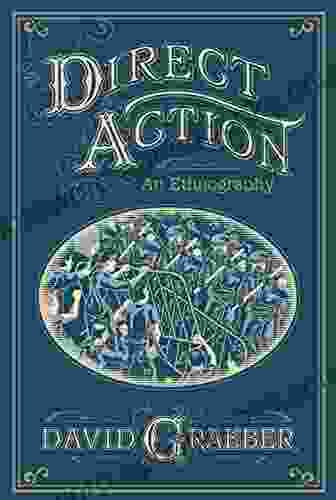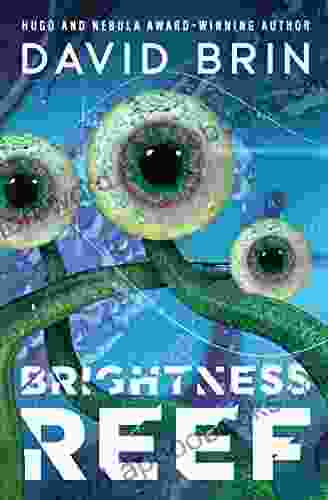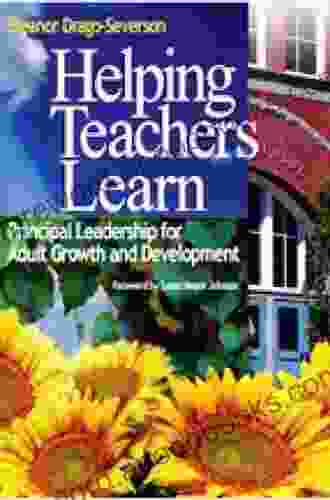Direct Action: An Ethnographic Journey Through the Heart of Collective Struggle

In the annals of social movements and political theory, Direct Action stands as a seminal work that has profoundly shaped our understanding of grassroots activism and the power of collective resistance. Written by the renowned anthropologist David Graeber, Direct Action is an ethnographic masterpiece that delves into the lived experiences of activists engaged in direct actions, offering a rich and nuanced analysis of the motivations, strategies, and outcomes of these transformative struggles.
Immersive Ethnography
Graeber's ethnographic approach takes the reader on an immersive journey into the world of direct actions, from the planning stages to the heart-stopping moments of confrontation. Through participant observation, interviews, and archival research, he paints a vivid portrait of the diverse individuals and groups involved in these actions, capturing their motivations, fears, and aspirations.
4.5 out of 5
| Language | : | English |
| File size | : | 2215 KB |
| Text-to-Speech | : | Enabled |
| Screen Reader | : | Supported |
| Enhanced typesetting | : | Enabled |
| Word Wise | : | Enabled |
| Print length | : | 594 pages |
From the Zapatista rebellion in Chiapas, Mexico, to the anti-capitalist protests in Seattle, Washington, Graeber weaves together a tapestry of case studies that showcase the multifaceted nature of direct actions. He explores the ways in which activists use roadblocks, occupations, strikes, and other tactics to disrupt the status quo and challenge power structures.
The Power of the People
At the core of Graeber's analysis is the belief in the transformative power of collective action. Direct Action argues that direct actions are not merely isolated incidents of protest, but rather a potent force for social change. By taking their struggles directly to the streets, activists can disrupt dominant narratives, create new possibilities, and empower marginalized communities.
Graeber demonstrates how direct actions can challenge the legitimacy of authority, expose the contradictions of the existing system, and build solidarity among diverse groups. He argues that, while direct actions may not always achieve their immediate goals, they have the potential to sow the seeds of long-term change by reshaping the political landscape.
Strategies of Direct Action
Graeber devotes considerable attention to the strategies employed by activists in direct actions. He identifies a range of tactics, from nonviolent civil disobedience to more confrontational approaches, and examines the factors that influence the choice of strategy.
Graeber argues that the effectiveness of a direct action depends on a careful assessment of the target, the resources available, and the potential risks. He emphasizes the importance of building alliances, developing clear goals, and maintaining discipline while carrying out direct actions.
Theorizing Direct Action
Beyond its ethnographic insights, Direct Action also makes significant theoretical contributions to the study of social movements and political activism. Graeber synthesizes insights from anthropology, sociology, and political science to develop a comprehensive framework for understanding the dynamics of direct actions.
He challenges traditional theories of social change that emphasize the role of institutions and elite bargaining, arguing instead that direct actions can be a powerful catalyst for transformative politics. Graeber also provides a critique of the concept of "representation" in politics, highlighting the importance of direct participation and self-organization in social movements.
Enduring Legacy
Since its publication in 2009, Direct Action has become a classic text in the field of social movement studies. It has been translated into multiple languages and has inspired countless activists, scholars, and policymakers around the world.
Graeber's work has helped to legitimize the study of direct actions as a serious academic pursuit. It has also provided a valuable toolkit for activists seeking to understand and implement effective strategies for social change.
Direct Action: An Ethnography is an essential read for anyone interested in the power of collective action and the transformative potential of social movements. David Graeber's immersive ethnography provides a nuanced and insightful analysis of direct actions, offering valuable lessons for activists, scholars, and anyone seeking to understand the dynamics of social change.
Through its rigorous research, compelling narratives, and insightful theorizing, Direct Action invites us to question the limits of conventional politics and embrace the transformative power of direct action. As we face unprecedented social, economic, and environmental challenges, Graeber's work serves as a timely reminder of the importance of collective struggle and the indomitable spirit of human resilience.
4.5 out of 5
| Language | : | English |
| File size | : | 2215 KB |
| Text-to-Speech | : | Enabled |
| Screen Reader | : | Supported |
| Enhanced typesetting | : | Enabled |
| Word Wise | : | Enabled |
| Print length | : | 594 pages |
Do you want to contribute by writing guest posts on this blog?
Please contact us and send us a resume of previous articles that you have written.
 Book
Book Novel
Novel Page
Page Chapter
Chapter Text
Text Story
Story Genre
Genre Reader
Reader Library
Library Paperback
Paperback E-book
E-book Magazine
Magazine Newspaper
Newspaper Paragraph
Paragraph Sentence
Sentence Bookmark
Bookmark Shelf
Shelf Glossary
Glossary Bibliography
Bibliography Foreword
Foreword Preface
Preface Synopsis
Synopsis Annotation
Annotation Footnote
Footnote Manuscript
Manuscript Scroll
Scroll Codex
Codex Tome
Tome Bestseller
Bestseller Classics
Classics Library card
Library card Narrative
Narrative Biography
Biography Autobiography
Autobiography Memoir
Memoir Reference
Reference Encyclopedia
Encyclopedia Frances Mayes
Frances Mayes Peter Wells
Peter Wells David N Moore
David N Moore Maddison Cole
Maddison Cole Jeffrey Tanenhaus
Jeffrey Tanenhaus Yong Chen
Yong Chen June 28 2019 Edition Kindle Edition
June 28 2019 Edition Kindle Edition David Damschroder
David Damschroder Patrick Gabridge
Patrick Gabridge David E Navarro
David E Navarro Wilfredo Alvarez
Wilfredo Alvarez Wendy Higgins
Wendy Higgins Erich Nunn
Erich Nunn Ellen Israel Goldberg
Ellen Israel Goldberg R L Naquin
R L Naquin Imogen Matthews
Imogen Matthews Gerald Baier
Gerald Baier Stephen Wood
Stephen Wood Rexanne Becnel
Rexanne Becnel David Matthew Barnes
David Matthew Barnes
Light bulbAdvertise smarter! Our strategic ad space ensures maximum exposure. Reserve your spot today!
 Christian CarterFollow ·12.5k
Christian CarterFollow ·12.5k Federico García LorcaFollow ·17.6k
Federico García LorcaFollow ·17.6k Fyodor DostoevskyFollow ·16.5k
Fyodor DostoevskyFollow ·16.5k Tom HayesFollow ·9.2k
Tom HayesFollow ·9.2k William FaulknerFollow ·18.2k
William FaulknerFollow ·18.2k Aleksandr PushkinFollow ·15.3k
Aleksandr PushkinFollow ·15.3k W.H. AudenFollow ·15.2k
W.H. AudenFollow ·15.2k Albert ReedFollow ·9.6k
Albert ReedFollow ·9.6k

 Douglas Powell
Douglas PowellEscape into a World of Sweet Love and Second Chances with...
Prepare yourself...

 Garrett Powell
Garrett PowellMaster Badminton: A Comprehensive Guide to the Thrilling...
Are you ready to step into the world of...

 Deacon Bell
Deacon BellTrailer Park Trickster: The Adam Binder Novels
Book 1: The...

 Oscar Bell
Oscar BellLeo: The Very Modern Taoiseach
Leo Varadkar's journey...
4.5 out of 5
| Language | : | English |
| File size | : | 2215 KB |
| Text-to-Speech | : | Enabled |
| Screen Reader | : | Supported |
| Enhanced typesetting | : | Enabled |
| Word Wise | : | Enabled |
| Print length | : | 594 pages |
















